- Home
- Anne Bishop
Pillars of the World
Pillars of the World Read online
for
Pat York and
Lynn Flewelling
and
in memory of
Alan Mietlowski
Contents
Chapter One
Chapter Two
Chapter Three
Chapter Four
Chapter Five
Chapter Six
Chapter Seven
Chapter Eight
Chapter Nine
Chapter Ten
Chapter Eleven
Chapter Twelve
Chapter Thirteen
Chapter Fourteen
Chapter Fifteen
Chapter Sixteen
Chapter Seventeen
Chapter Eighteen
Chapter Nineteen
Chapter Twenty
Chapter Twenty-one
Chapter Twenty-two
Chapter Twenty-three
Chapter Twenty-four
Chapter Twenty-five
Chapter Twenty-six
Chapter Twenty-seven
Chapter Twenty-eight
Chapter Twenty-nine
Chapter Thirty
Chapter Thirty-one
Chapter Thirty-two
Chapter Thirty-three
Chapter Thirty-four
Chapter Thirty-five
ACKNOWLEDGMENTS
The Black Jewels Trilogy
Books by Anne Bishop
Copyright
About the Publisher
Chapter One
Another road was closing. It would take a little time, but not that long. For a few more days, that road through the Veil that separated Tir Alainn from the human world would shine, as it had for as long as the Fae could remember. Then the Veil would thicken and the road would disappear, and any of the Fae Lords or Ladies who tried to travel that road out of Tir Alainn wouldn’t come home again.
And once the road closed, the part of Tir Alainn that was connected to that road would disappear as well — another piece of what had been the Fae’s most glorious act of magic mysteriously devoured.
We do not ask what becomes of the Fae who lived in those lost pieces, Dianna thought as she stared at the garden beyond the open window. We do not ask if they are somehow surviving in their Clan houses, cut off from the rest of us, or if they’ve become lost souls who will never reach the Summerland when the flesh gives itself back to the Mother.
Turning away from the window, she faced the man and woman who had been patiently waiting for her attention.
They had the feral beauty that was common to the Fae. The woman had dark red hair and woodland eyes — a brown-flecked green. Some of the Fae said eyes that color harkened back to the House of Gaian, a Clan that had disappeared so long ago it was barely even a legend anymore. Whether that was truth or wishful thinking, no one could say any more than they could remember why the House of Gaian had been special — or why it had disappeared.
The man had black hair and blue eyes that were usually filled with sharp amusement. She saw storms in his eyes now, and sadness in the woman’s.
“You found nothing,” she said, not bothering to make it a question since their eyes had already answered.
“We found nothing,” Lyrra replied. “Inspira, Cariden, and I have asked every storyteller and poet we could find. None remember anything that would help us understand why the roads are closing or how to stop it from happening.” She hesitated. “I don’t know if this is related to the information we’ve been seeking, but there was an old poet from another Clan who remembered hearing a fragment of an ancient poem that spoke of the Pillars of the World. But he had been a child when he heard it and could recall nothing else about it.”
“The Pillars of the World,” Dianna said, forcing herself to remain calm. “Do you know what it means?”
Lyrra shook her head. “It’s as if we had once known so well what they were, there was no need to explain them, no need to hold onto them with words.”
Dianna swallowed hope turned bitter. “Then it’s unlikely they have anything to do with what’s happening to us now.” She looked at the man.
“I found nothing,” Aiden said flatly. “The bards know songs enough about riding the roads and the delights that might be encountered on the other side of the Veil, but nothing that will help us.”
If the Muse and the Bard can find nothing, who else can we ask? Dianna wondered. Where else can we look for the answers?
None of them mentioned what might have been known to the Clans who had used the shining roads that had connected to the Old Places in the human countries called Arktos and Wolfram — the Clans who had been disappearing, one by one, since she was a little girl.
Now, the only roads through the Veil were the ones connected to Sylvalan, and those, too, were beginning to close.
Had warnings gone unheeded all those years, or had they never been sent? Had the Fae whose territories had been connected to the Old Places in those countries been willfully blind to the danger, so sure that whatever had happened to another Clan couldn’t possibly happen to them — or had they kept to their own Clan houses and their own territories because they’d been afraid that it would happen to them? Or had it been that those Clans had always seemed so distant anyway that no one in this part of their world had paid much attention?
Now the danger was no longer distant, no longer happening to someone else. Now it was devouring their Clans, and they hadn’t been able to find out why — and they hadn’t been able to stop it.
“I am sorry, Dianna,” Lyrra said softly.
“My thanks for trying,” Dianna said, turning back to the window.
A rustle of fabric. Quiet footsteps walking away.
Only one set of footsteps.
Looking over her shoulder, she could almost see the swelling anger in Aiden. “Something else?”
He joined her at the window. “Before coming to the Clan house here, I went down one of the other roads.” His expression was bland, but his eyes … “I traveled through a couple of villages in the northeastern part of Sylvalan.”
“And no doubt stopped at the taverns to hear a minstrel or two,” she said, working to give him an indulgent smile that might ease his mood.
He didn’t smile back. “I listened,” he said curtly.
And hadn’t liked what he’d heard.
“The minstrels are singing songs about beings they call wiccanfae.”
Dianna stiffened at the arrogance of anything else referring to itself as Fae. “And they are?”
“Wicked fairies. Witches. Creatures who, out of spite, will make a cow dry or a woman barren, who will creep into a house and devour a newborn’s soul so that the mother finds the babe dead in its cradle with no mark upon it. They sometimes steal babies to sacrifice to their master, the Evil One, so that he will come and indulge in carnal acts with them. They use their love charms on chaste young women of good name and family, causing them to become so overcome with lust that they fornicate with men, without the honorable bond of marriage. They are the vessels of dark magic.” He paused. “And they control the Small Folk, who are soulless creatures full of mischief magic. Creatures that must be cleansed from the land so that honest men can take the land’s bounty without coming to harm. Do you want to hear more?”
“No,” Dianna said, feeling a winter wind brush past her face even though spring would soon give way to summer. But what she wanted and what duty required were two different things. “Do you think these … wiccanfae … are the reason the roads are closing? Could they be using their magic to keep us out of the human world?”
“It is fact that the shining roads close in the human world before we lose a piece of Tir Alainn.”
Dianna saw something shift in his eyes. “What happened at those ta
verns?”
“Just as the Muse can still a tongue or open an inner door inside a person that allows the words to flow, so I can give the gift of music — or take it away.”
Dianna hesitated. Even for the Lady of the Moon — a title that made her the most influential female among the Fae — it was the better part of wisdom not to antagonize the Bard. Provoked, he wouldn’t hesitate to shape a song that would diminish a person into a fool. “If the witches are our enemies, why stop the minstrels’ songs?”
“I cannot stop what already exists, but I can stop any more from being created.”
She placed a hand on his arm, felt the tight muscles. “Why stop them?” she asked, wondering how much he hadn’t told her.
“One doesn’t need to drink from a cup to know that it contains a poison,” Aiden said harshly. “There’s something wrong with those songs. Music that hasn’t flowed through the heart on its journey to the hands offers little and can take much.” He smiled bitterly. “And those who play those songs have sold their hearts for a bag of gold coins.”
“Minstrels have to eat,” Dianna said cautiously.
“There is warm gold and cold gold, and I know which has been taken by the end of the first turn. These minstrels play songs that create an ugliness in the hearts of those who hear them. And they’ve put new words to old tunes — tunes we created — that once spoke gently of magic and the gifts that magic gives. That is too deep an insult, Dianna, because that is an offense against us. The decision to take back the gift of music is mine, and only mine, to make.”
“Has Lyrra decided to take back the Muse’s gift as well?”
His eyes darkened until they were almost black.
Oh, yes, Dianna thought. The Bard heard far more than he has said.
“I have asked her to take back her gift from any minstrel who sings those songs,” he said quietly. “But that is her choice.”
Which meant that, unless she had a strong reason to oppose him, the Muse would honor his request. She and the Bard weren’t exclusive lovers, but they were lovers nonetheless and often gave — or withheld — their gifts in tandem.
“And there is another reason to silence the music that would smear all magic with the offal of the witches’ deeds.” Aiden crossed his arms, leaned against the wall next to the window. “We travel through the Veil and use our gifts to hinder or help the humans.”
“We do that because it amuses us, not because we need to,” Dianna said impatiently.
“We do that because it amuses us,” Aiden agreed, “and because it’s … invigorating.”
Dianna let out a delicate snort. She knew quite well what “invigoration” Fae men found in the human world. Fae women seldom found a similar kind of “invigoration.”
Aiden’s blue eyes twinkled, a sure sign that he knew exactly what she was thinking. Then the twinkle faded, leaving him serious again. “That isn’t exactly what I meant. Living in Tir Alainn is like floating in the sun-warmed water of a quiet pond. Dealing with humans and their world is like riding the rapids of a fast river. One brings peace, the other stirs the blood.”
“There’s nothing wrong with peace,” Dianna insisted. Especially when it might be taken away at any moment.
“Tell me something, Dianna,” Aiden said. “When you ride with your shadow hounds for the Wild Hunt, do you gallop over the perfect, rolling hills of Tir Alainn or the rough imperfection of the human world?”
She didn’t want to answer that, didn’t want to acknowledge the truth in what he was saying — that the Fae traveled to the human world because the peace and perfection of Tir Alainn became boring after a while — so she said nothing.
After a moment, Aiden said, “I’ll see if I can find any other references to the Pillars of the World. It may have been nothing more than a bard’s way of referring to the roads at one time or other, but even knowing that much is more than we know now.”
She nodded in agreement. Then there was nothing more to say.
“Dianna,” Aiden said, bowing slightly.
“Aiden,” she replied.
After he left, she remained at the window. If they didn’t find the reason behind the roads closing, the day would come when she would look out and see … what? What had any of the lost Fae seen before their piece of Tir Alainn disappeared?
Wiccanfae.
Her mouth shaped the word without giving it voice.
If they were the reason her beloved Tir Alainn was dying, they would soon discover what it was like to have the Lady of the Moon, who was also called the Huntress, for an enemy.
Chapter Two
Adolfo, the Master Inquisitor, stood near the wide, open grave, his hands lightly clasped at his waist. A spring wind, too cold for this late in the season, tugged at his long, fur-lined, austerely cut brown coat. He paid no more heed to the wind than he did to the baron, Hirstun, standing beside him, or the common men who had gathered at this place to watch; his attention was focused on the men dragging the bound, struggling woman from the cart.
“Take care,” he said in that quietly stern voice that the countries of Arktos and Wolfram had already learned to fear. “Do not let her wickedness incite you to less than honorable behavior. Her remaining time should be spent in reflection and repentance on the harm she has done the good people of Kylwode and not on any harsh treatment that may come from your hands.”
The men holding the woman hesitated, then nodded. She fought against their hands, making it impossible to lead her forward without dragging her.
Adolfo fixed his brown eyes on her. “Do not make this more difficult. Accept the fate your own actions have brought you to.” He paused, then added very gently, “Unless you have other things to confess?”
The woman stiffened, her eyes wide and fearful. A moment later, she sagged in her captors’ hands.
They led her to the open grave, keeping their steps small as she shuffled between them as well as the hobbles permitted. When they turned her to face Baron Hirstun and Adolfo, her eyes were filled with loathing for the men who had condemned her. She straightened, a last gesture of defiance that made her look like one of the gentry instead of a frightened, bedraggled woman who was about to die.
Adolfo felt fear creep down his spine, felt it collide with the hatred that had shaped his life until it settled into a dull ache in his lower back. That war within himself didn’t show on his face or in the eyes that always remained as soft and gentle-looking as a doe’s.
But the other men shifted uneasily as they felt the power rising in her.
It’s the last time it will rise, Adolfo reassured himself. And it can’t help her now. I’ve made sure of that. “Do you have any last words?” he asked her.
She said nothing.
One of the men holding her glanced at the metal device around her head. “Begging your pardon, Master Adolfo, but I don’t think she can be saying much with that thing around her head.”
“Get on with it,” Hirstun growled.
Adolfo ignored the baron and addressed the man. “I would know her words no matter how garbled. But the metal tongue on the scold’s bridle prevents her from clear speech, and, therefore, prevents her from casting a last spell to harm those who bring her to justice.”
The other man grinned at the first. “You should get one of those for your Jenny, Sax. Give you a bit of peace.”
Sax ducked his head. “Her tongue’s got a sharp side to it, and that’s the truth, but I couldn’t see putting one of those things on my Jenny.”
“The scold’s bridle is a good man’s tool,” Adolfo said. “A caring husband and father does not allow his females to stray into unseemly behavior, nor does he allow his females to create discord at home. And it is well known that a woman’s sharp words can blight a man’s rod and weaken his seed until all he can fill her with are girl babes instead of strong sons.”
Sax’s face turned bright red. He stared at the ground. “Still, it looks like a harsh thing to do to a woman.”
Adolfo s
miled indulgently. “Metal is used for witches. For other women, the scold’s bridle is made of leather, and a man tends it with the same care he gives the bridle of his favorite mare. It does her no harm. The shame of wearing it is sufficient to teach her modesty and pleasing behavior. Even my own cherished wife must, from time to time, wear the bridle. At first she resented and resisted being disciplined. Now she is grateful for that sign of my deep affection and concern for her well-being.” He waited a moment, then added, “But perhaps you do not care quite as much for your Jenny.”
After a long pause, Sax mumbled, “Where could I find one of these bridles?”
“I have copies of the pattern,” Adolfo said. “I’ll see that you get one — when our task is complete.”
He kept his eyes on Sax, but he had been watching the witch, had seen the moment when she could no longer maintain her defiant stance and had slumped once more into the resignation of a dumb animal caught in a trap.
“Bind her legs. Be sure to leave enough leather for the spikes.”
Sax pulled the length of leather from his belt and hunched down. When he reached under her dress, Adolfo snapped, “Bind it over her dress. We do not want any good man standing witness here to be provoked into lust if she should begin thrashing and expose her limbs. Women are weak vessels, easily corrupted by the Evil One. But even a strong man can be snared through the lascivious actions of a woman who is the Evil One’s servant.”
Sax quickly finished tying her and stepped back, rubbing his hands against the rough fabric of his trousers, as if even so little exposure to her might put him in danger.
Adolfo made a slight gesture at the grave. “Put her down. One of you other men get the box from the cart.”
When Sax and his friend lowered her into the grave, she began struggling again. Reluctantly, they slid into the hole to force her onto her back.
“Drive the spikes into the ground and tie the leather to them to keep her legs still,” Adolfo instructed. He gestured to the man who had retrieved the box that had been built to Adolfo’s specifications. “Place the box over her head and shoulders. Fix the other spikes through the straps.”
As soon as Sax and his friend were done, the other men helped them out of the grave.

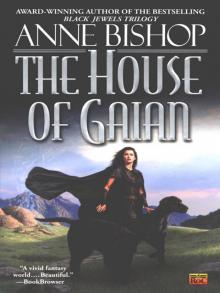 The House of Gaian
The House of Gaian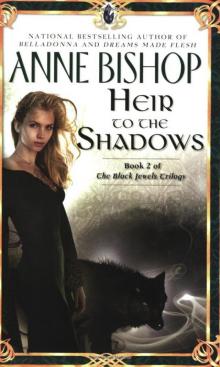 Heir to the Shadows
Heir to the Shadows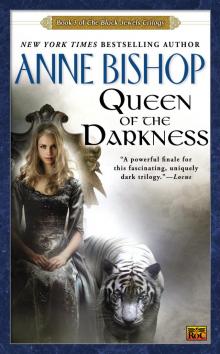 Queen of the Darkness
Queen of the Darkness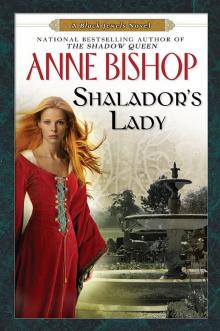 Shaladors Lady
Shaladors Lady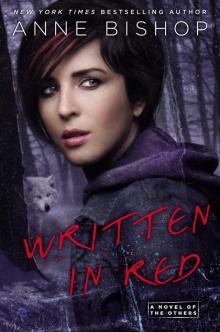 Written in Red
Written in Red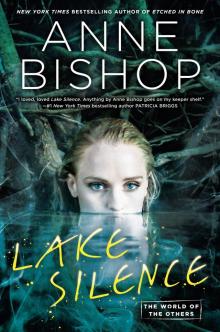 Lake Silence
Lake Silence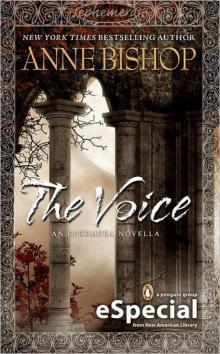 The Voice
The Voice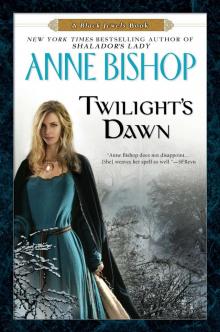 Twilights Dawn
Twilights Dawn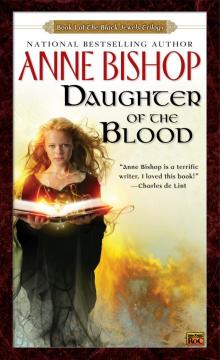 Daughter of the Blood
Daughter of the Blood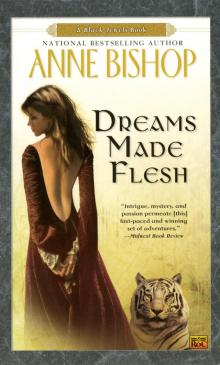 Dreams Made Flesh
Dreams Made Flesh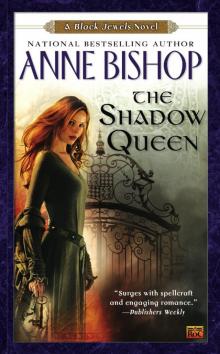 The Shadow Queen
The Shadow Queen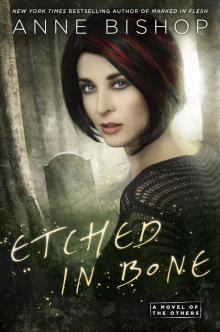 Etched in Bone
Etched in Bone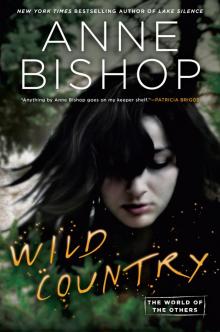 Wild Country
Wild Country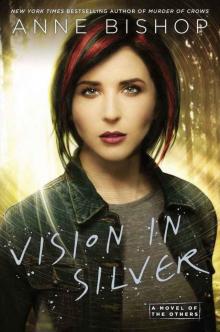 Vision in Silver
Vision in Silver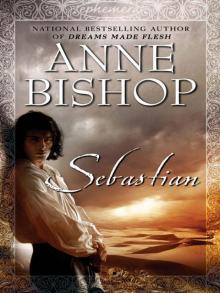 Sebastian
Sebastian Shadows and Light
Shadows and Light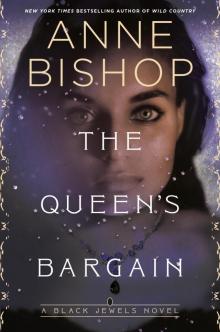 The Queen's Bargain
The Queen's Bargain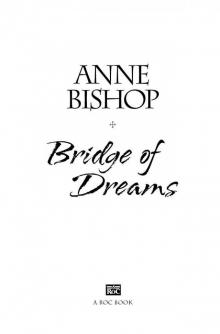 Bridge of Dreams
Bridge of Dreams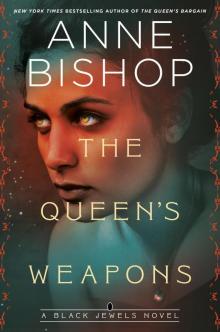 The Queen's Weapons
The Queen's Weapons Pillars of the World
Pillars of the World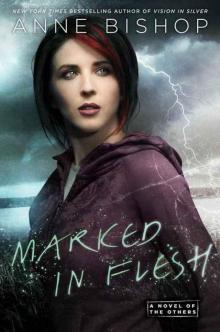 Marked in Flesh
Marked in Flesh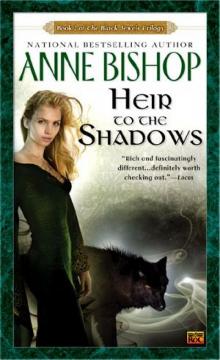 Heir to the Shadows dj-2
Heir to the Shadows dj-2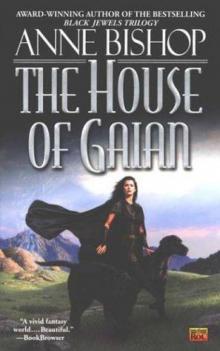 The House of Gaian ta-3
The House of Gaian ta-3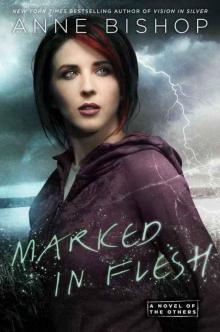 Marked In Flesh (The Others #4)
Marked In Flesh (The Others #4)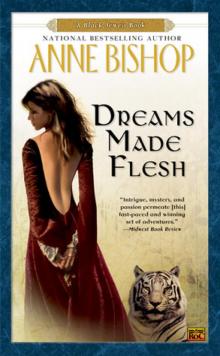 Dreams Made Flesh bj-5
Dreams Made Flesh bj-5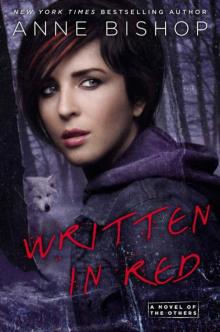 Written In Red: A Novel of the Others
Written In Red: A Novel of the Others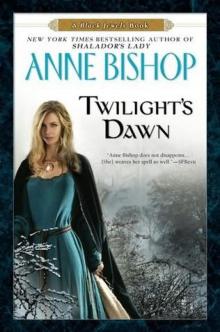 Twilight's Dawn dj-9
Twilight's Dawn dj-9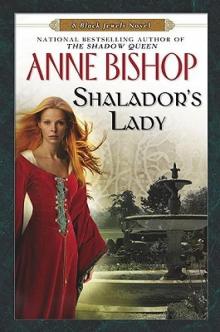 Shalador's Lady bj-8
Shalador's Lady bj-8 The Pillars of the World
The Pillars of the World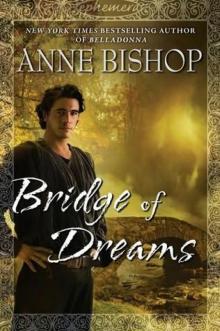 Bridge of Dreams e-3
Bridge of Dreams e-3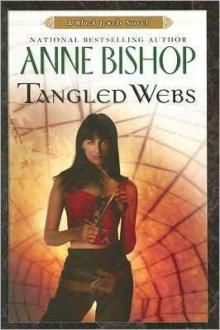 Tangled Webs bj-6
Tangled Webs bj-6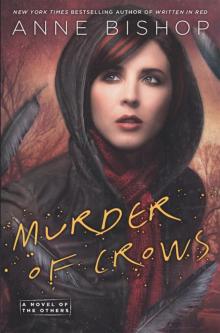 Murder of Crows: A Novel of the Others
Murder of Crows: A Novel of the Others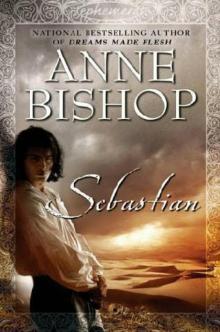 Sebastian e-1
Sebastian e-1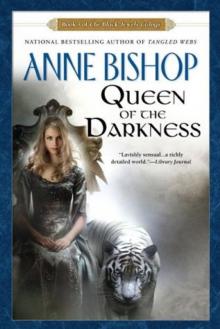 Queen of the Darkness bj-3
Queen of the Darkness bj-3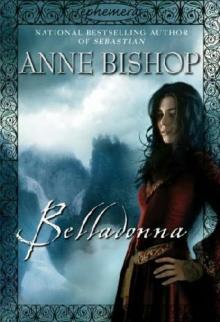 Belladonna e-2
Belladonna e-2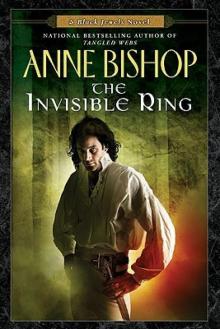 The Invisible Ring bj-4
The Invisible Ring bj-4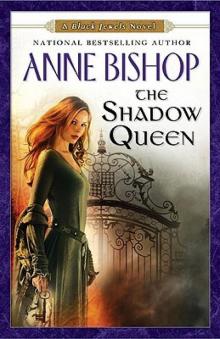 The Shadow Queen bj-7
The Shadow Queen bj-7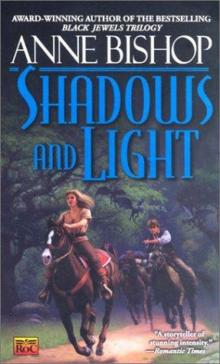 Shadows and Light ta-2
Shadows and Light ta-2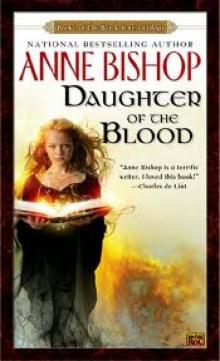 Daughter of the Blood bj-1
Daughter of the Blood bj-1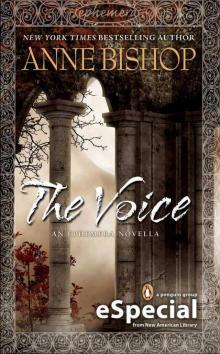 The Voice: An Ephemera Novella(An eSpecial from Roc)
The Voice: An Ephemera Novella(An eSpecial from Roc)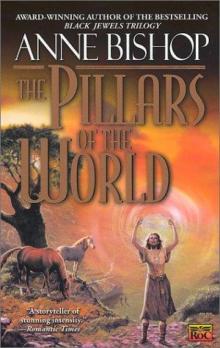 The Pillars of the World ta-1
The Pillars of the World ta-1